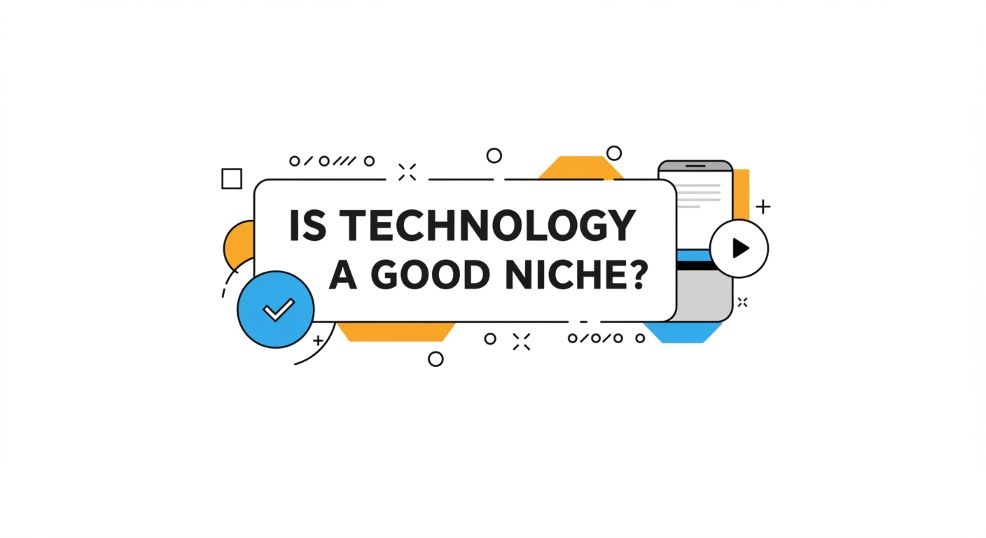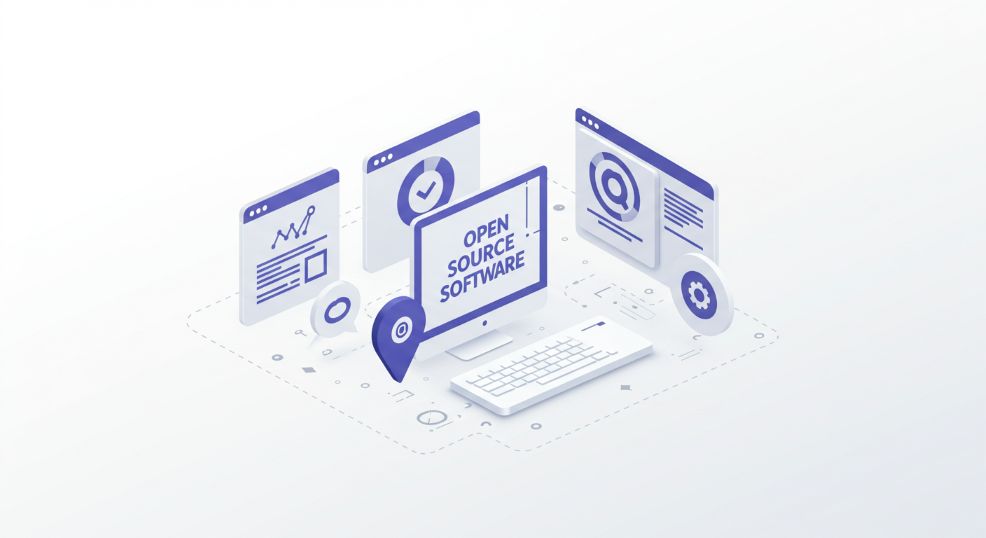Location

Introduction
Blogging has evolved from a personal diary to a dynamic platform for sharing information, educating audiences, and generating income. Choosing the right niche is crucial for success, as it determines your target audience, monetization opportunities, and long-term sustainability. Among the myriad niches available, technology stands out due to its pervasive influence in modern life. But is technology truly a good niche for blogging? Let’s explore this question in detail.
Advantages of the Technology Niche
High Demand for Tech Content
Technology impacts nearly every aspect of our lives, from smartphones to smart homes. This universal reliance creates a vast audience seeking guidance, reviews, and insights. Emerging trends such as artificial intelligence (AI), blockchain, and the Internet of Things (IoT) further fuel this demand, ensuring a consistent flow of interested readers.
Diverse Sub-niches
One of the most appealing aspects of the technology niche is its remarkable diversity, which provides endless opportunities for bloggers to specialize. Here are some popular sub-niches that offer both creativity and profitability:
- Gadgets and Hardware Reviews: This sub-niche involves reviewing and analyzing tech gadgets like smartphones, laptops, gaming consoles, and accessories. These reviews help consumers make informed purchasing decisions and often tie into affiliate marketing opportunities.
- Software Tutorials and Troubleshooting: In this area, bloggers create content that guides users on using software applications, troubleshooting errors, or optimizing performance. For example, tutorials on popular software like Photoshop, Microsoft Office, or coding platforms can attract a vast audience.
- Emerging Tech Trends: Covering topics such as artificial intelligence, blockchain, augmented reality (AR), virtual reality (VR), and green technology keeps readers engaged with the future of innovation. These subjects are particularly appealing to tech enthusiasts and professionals eager to stay ahead.
- Tech for Specific Audiences: This includes niche content tailored for unique groups, such as technology for educators, small businesses, or seniors. For instance, a blog focused on “tech for remote workers” could include productivity tools, hardware suggestions, and security tips.
- Gaming and Esports: Gaming blogs cover everything from game reviews and walkthroughs to discussions on gaming hardware and esports events. This sub-niche attracts passionate gamers and fosters a vibrant community.
- Cybersecurity and Privacy: With growing concerns about online safety, blogs dedicated to cybersecurity offer advice on data protection, VPN recommendations, and awareness about online threats.
- Smart Home and IoT Devices: This emerging sub-niche explores the growing ecosystem of smart home devices, from smart speakers to automated lighting and security systems.
This variety ensures that bloggers can align their content with their interests, expertise, and audience demands. It also allows for adaptability, as bloggers can expand into related sub-niches over time to keep their content fresh and engaging.g.
Monetization Opportunities
The technology niche offers numerous and varied monetization strategies that can cater to both novice and experienced bloggers:
- Affiliate Marketing: Perhaps the most straightforward way to earn revenue, affiliate marketing involves promoting tech products or services and earning a commission on sales generated through unique affiliate links. High-value items such as laptops, cameras, or software subscriptions can result in substantial earnings. Partnering with platforms like Amazon Associates, ShareASale, or niche-specific affiliate programs ensures access to a wide range of products.
- Sponsored Content: Brands often collaborate with tech bloggers to promote their products or services. Sponsored posts might include product reviews, tutorials, or announcements. This type of collaboration can be lucrative, especially if the blogger’s audience aligns closely with the brand’s target demographic.
- Display Advertising: Using ad networks like Google AdSense or Mediavine allows bloggers to earn passive income through ad placements on their site. Revenue typically depends on website traffic and audience engagement.
- Creating Digital Products: Knowledgeable tech bloggers can package their expertise into sellable digital products, such as eBooks, courses, or webinars. For example, a blog focused on programming could offer an online course on Python for beginners.
- Subscription Models and Memberships: Platforms like Patreon or Substack enable bloggers to offer premium content in exchange for a monthly fee. Exclusive tutorials, early access to reviews, or private forums can incentivize subscriptions.
- Consulting Services: Experienced bloggers can monetize their expertise by offering consultancy services to individuals or businesses. This could include tech setup advice, digital transformation strategies, or cybersecurity audits.
- Selling Merchandise: A tech blog with a strong brand identity can expand into selling merchandise such as branded t-shirts, mugs, or even tech accessories like custom-designed phone cases.
- Webinars and Live Streams: Hosting live events or webinars focused on tech topics like coding workshops, product deep dives, or Q&A sessions can attract audiences willing to pay for specialized knowledge.
By diversifying income streams, tech bloggers can reduce reliance on any single source of revenue, ensuring financial stability and growth potential.
Scalability
The technology niche is inherently scalable. As new trends emerge, bloggers can pivot or expand their focus. For instance, a blog on smartphones can gradually incorporate content on wearable tech or smart home devices.
Challenges of the Technology Niche
Intense Competition
The tech niche is one of the most saturated in blogging. Established giants like TechCrunch and CNET dominate the space. To thrive, new bloggers must identify a unique angle and offer distinctive value to their audience.
Need for Technical Expertise
Readers expect accuracy and depth in tech blogs. Achieving this requires:
- Research Skills: Staying informed about the latest developments.
- Clarity: Making complex topics accessible to a broader audience.
Rapidly Changing Landscape
Technology evolves at breakneck speed. Bloggers must continuously update their content to stay relevant. Outdated articles can hurt credibility and search engine rankings.
Key Strategies for Success in Tech Blogging
Identifying a Unique Angle
Specialization is key to standing out. Bloggers can focus on niche topics, such as sustainable technology or affordable gadgets, to carve out a dedicated audience.
Leveraging SEO
Search engine optimization (SEO) is vital for visibility. Effective strategies include:
- Keyword Research: Identifying relevant terms with high search volume and low competition.
- Technical SEO: Ensuring fast-loading pages and mobile-friendly designs.
Engaging Content Creation
Tech blogs should aim for engaging and interactive content:
- Visuals: Infographics, screenshots, and videos enhance understanding.
- Storytelling: Personal experiences with tech products resonate with readers.
Building Community
A loyal audience is the backbone of a successful blog. Encouraging reader interaction through comments, forums, and social media fosters a sense of community.
Tools and Resources for Tech Bloggers
Writing and Editing Tools
Platforms like Grammarly and Hemingway ensure polished, error-free content.
SEO Tools
Tools like SEMrush and Ahrefs help identify keywords, analyze competitors, and track performance.
Design Tools
Canva and Adobe Suite enable bloggers to create professional visuals and layouts.
Tech-Specific Research Platforms
Forums like Reddit and Quora, alongside industry reports, provide valuable insights and inspiration.
Case Studies of Successful Tech Blogs
Several tech blogs have achieved remarkable success. For instance:
- TechCrunch: Known for breaking news and comprehensive reviews.
- How-To Geek: Specializes in tutorials and practical guides.
Analyzing these blogs reveals the importance of consistency, audience engagement, and adaptability.
Conclusion
The technology niche offers immense potential for aspiring bloggers. While challenges like competition and rapid changes exist, the advantages—including high demand, monetization opportunities, and scalability—make it an attractive choice. By identifying a unique angle, leveraging SEO, and creating engaging content, tech bloggers can build a thriving platform. With dedication and strategic planning, the technology niche can indeed be a rewarding path in the blogging world.




